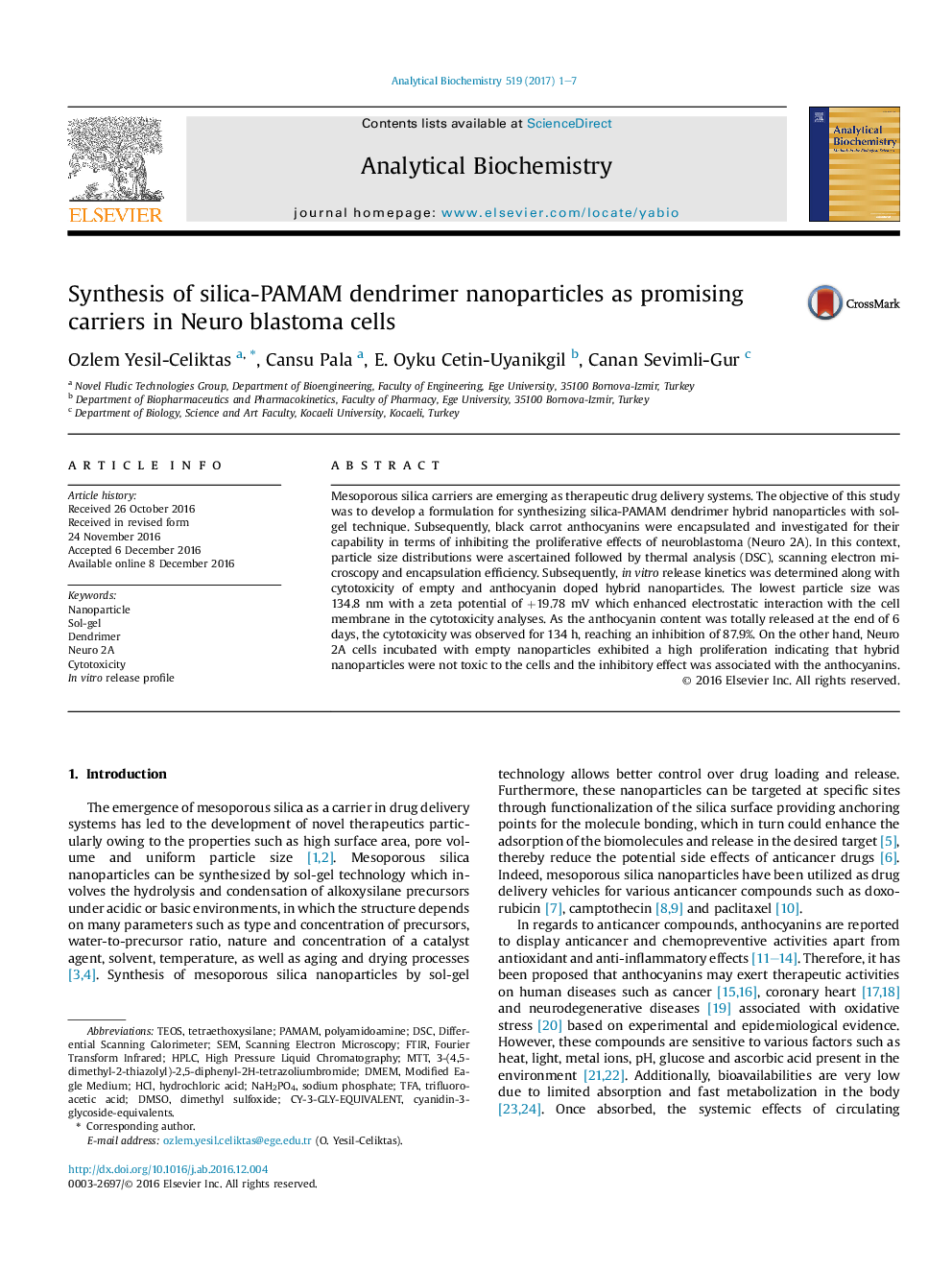| کد مقاله | کد نشریه | سال انتشار | مقاله انگلیسی | نسخه تمام متن |
|---|---|---|---|---|
| 5131709 | 1491328 | 2017 | 7 صفحه PDF | دانلود رایگان |

- Silica-PAMAM dendrimer nanoparticles were loaded with black carrot anthocyanins.
- The lowest particle size was 134.8 nm with a zeta potential of +19.78 mV.
- Anthocyanin content was totally released at the end of 6 days.
- The cytotoxicity was remarkable against neuroblastoma.
- Empty nanoparticles exhibited a high proliferation indicating non-toxicity to the cells.
Mesoporous silica carriers are emerging as therapeutic drug delivery systems. The objective of this study was to develop a formulation for synthesizing silica-PAMAM dendrimer hybrid nanoparticles with sol-gel technique. Subsequently, black carrot anthocyanins were encapsulated and investigated for their capability in terms of inhibiting the proliferative effects of neuroblastoma (Neuro 2A). In this context, particle size distributions were ascertained followed by thermal analysis (DSC), scanning electron microscopy and encapsulation efficiency. Subsequently, in vitro release kinetics was determined along with cytotoxicity of empty and anthocyanin doped hybrid nanoparticles. The lowest particle size was 134.8 nm with a zeta potential of +19.78 mV which enhanced electrostatic interaction with the cell membrane in the cytotoxicity analyses. As the anthocyanin content was totally released at the end of 6 days, the cytotoxicity was observed for 134 h, reaching an inhibition of 87.9%. On the other hand, Neuro 2A cells incubated with empty nanoparticles exhibited a high proliferation indicating that hybrid nanoparticles were not toxic to the cells and the inhibitory effect was associated with the anthocyanins.
205
Journal: Analytical Biochemistry - Volume 519, 15 February 2017, Pages 1-7